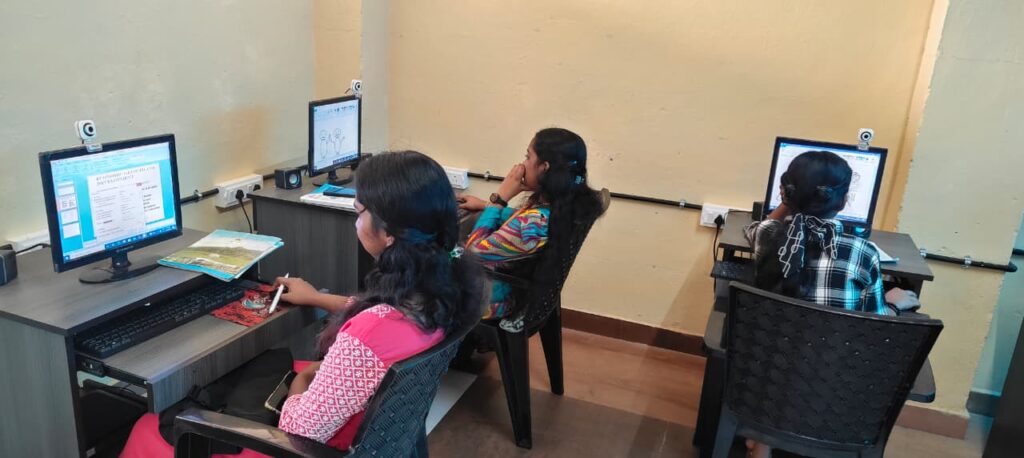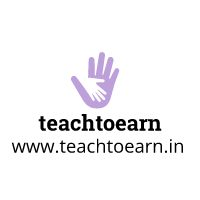Parents today spend lakhs of rupees on school fees, tuitions, and coaching classes. Yet, many are left frustrated—“Why isn’t my child curious? Why is learning just about passing exams?” The truth is, while schools play an important role, they cannot carry the full burden of a child’s education. Real learning happens when parents step in, not as teachers, but as empowerers—providing the right tools, space, and support.
This conversation between a concerned parent and a seasoned school principal explores why outsourcing learning entirely to schools is a mistake—and how solutions like the APNA PC can change the game for every child.

Parent: Principal sir, I’m honestly worried. We send our child to what people call one of the “best” schools in the city. We pay heavy fees, we arrange tuitions on top of that, but when I see my son at home, he doesn’t seem to enjoy learning at all. He studies only for exams. Outside the syllabus, he’s completely blank. Why is this happening?
Principal: That’s a very important question, and you’re not alone. Many parents feel the same way. The truth is—schools are designed to teach children in bulk. We handle 40–60 kids in a classroom, bound by syllabus, timetables, and exams. The structure ensures order, but it leaves very little room for personal curiosity.
Parent: But isn’t school supposed to spark curiosity? I feel I’m paying for my child’s learning, not just for a certificate.
Principal: Absolutely, and as a principal, I wish we could give each child individual attention. But let’s be honest: a classroom is like a factory. We move at the pace of the syllabus, not the pace of each child. The system rewards rote-learning, exam preparation, and marks—not creativity or exploration.
Parent: So then what’s the point? Are parents just wasting money sending kids to school?
Principal: Not at all. Schools still provide structure, discipline, socialization, and exposure. But here’s the mistake many parents make—they outsource the entire responsibility of learning to schools. They assume, “We’ve paid fees, so the school will take care of everything.” But real education doesn’t work like that. Schools can plant seeds, but the watering and nurturing must happen at home.
Parent: Hmm, I see your point. But I’m not a teacher. How do I “nurture learning” at home without turning into another tuition class?
Principal: That’s a common worry. Parents think “helping” means teaching. It doesn’t. It means creating an environment where the child can learn independently. You don’t need to sit and lecture your child. You only need to give them access to the right tools.
Parent: Tools? Like what?
Principal: Let me give you an example. Imagine your child is curious about how volcanoes erupt. In school, the teacher may spend 10 minutes explaining the chapter. But at home, if your child has access to an APNA PC, he can watch a documentary, run a 3D simulation, or even build a mini volcano project using free science tutorials. That’s when learning becomes real, alive, and unforgettable.
Parent: I get what you’re saying. But why a PC? Why not just give him a phone or tablet? Kids love screens anyway.
Principal: Excellent question. Phones and tablets are designed for entertainment, not education. Social media, games, and distractions take over. A personal computer—especially one designed for learning like the APNA PC—becomes a serious tool. It gives a child a sense of ownership: “This is my machine, my gateway to knowledge.” With curated apps, parental dashboards, and open access to the best free resources in the world, a PC turns your home into a mini learning lab.
Parent: But won’t that add more screen time? Isn’t too much tech harmful?
Principal: Screen time is harmful when it’s mindless scrolling. But if screen time is used for coding, designing, writing, or exploring science projects, it’s powerful. The key is not to ban technology but to guide its use.
Parent: I understand. But honestly, I always thought learning is the teacher’s job.
Principal: That’s where many parents get it wrong. The world is changing. In the 20th century, a child could succeed just by following the school system. But in today’s world of AI, automation, and constant change, self-learners thrive, not rote-learners. If you only depend on schools, your child will end up with marks, not with skills.
Parent: So what you’re saying is—I need to stop thinking of myself as a customer who has “outsourced” education to school, and instead become a partner in my child’s education?
Principal: Exactly! Education is a shared responsibility. Think of schools as scaffolding, and parents as the foundation. Without parental involvement, curiosity dies. With the right environment at home, curiosity blooms.
Parent: This really makes sense. I realize now that my role is not to replace the school, but to extend it.
Principal: Well said. Imagine the school as giving your child a basic road map. But with tools like the APNA PC, your child can travel beyond the map—exploring, experimenting, and discovering. That’s the difference between being “educated” and being “truly learned.”
Parent: I like that. But I’m still wondering—won’t this be expensive?
Principal: Surprisingly, no. The APNA PC is offered at just ₹9,999—including all peripherals. That’s less than what you spend on two months of tuition! And unlike tuitions, which vanish after the child forgets the lesson, a PC keeps empowering him day after day, year after year.
Parent: Hmm, when you put it like that, it sounds like an investment in his future.
Principal: Exactly. Schools will give him marks. A PC will give him mastery. Together, that’s the perfect formula for success.
The truth is simple: schools alone cannot prepare your child for the future. Marks don’t equal mastery. Parents who think education ends with school fees are setting their children up for disappointment. But parents who provide the right tools create lifelong learners.
👉 Don’t wait for schools to do it all. Take charge of your child’s future today.
Buy an APNA PC for just ₹9,999 and give your child access to the world’s best teachers, right from your home.
